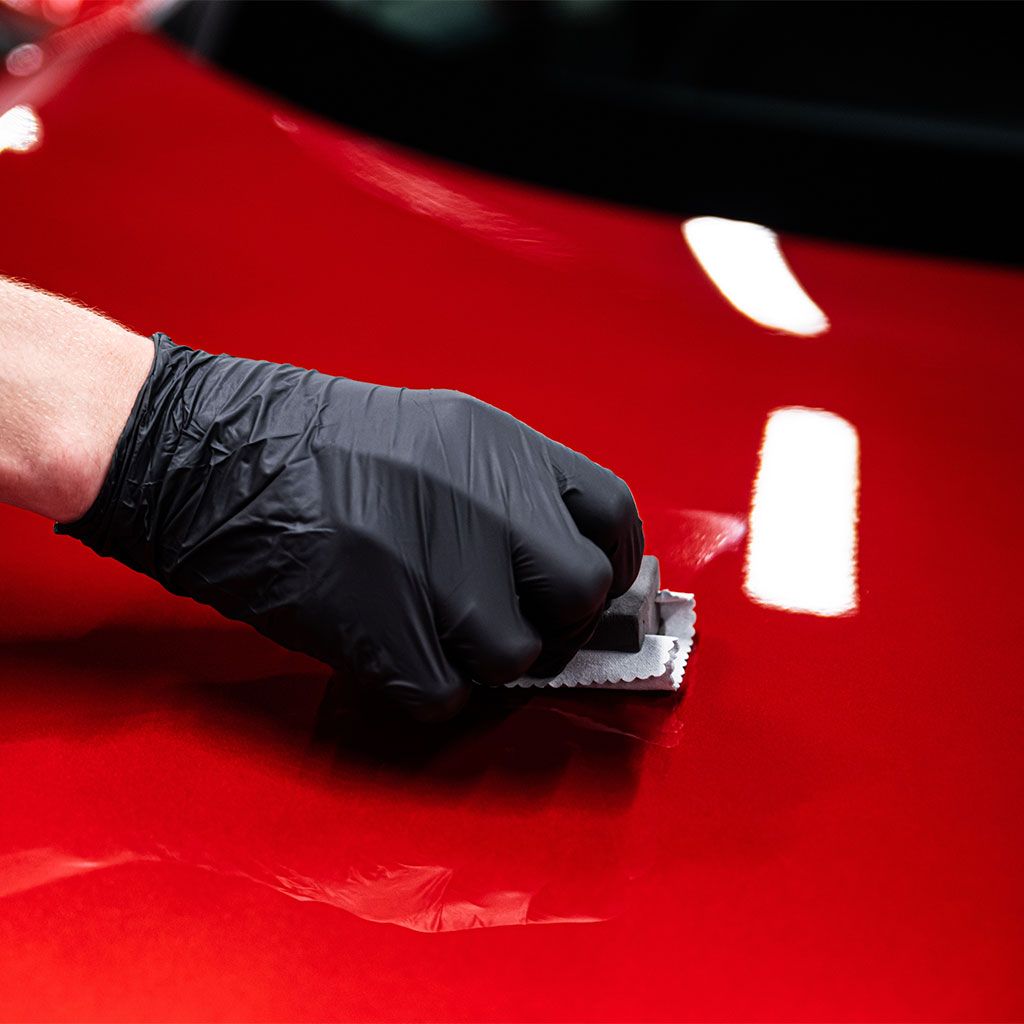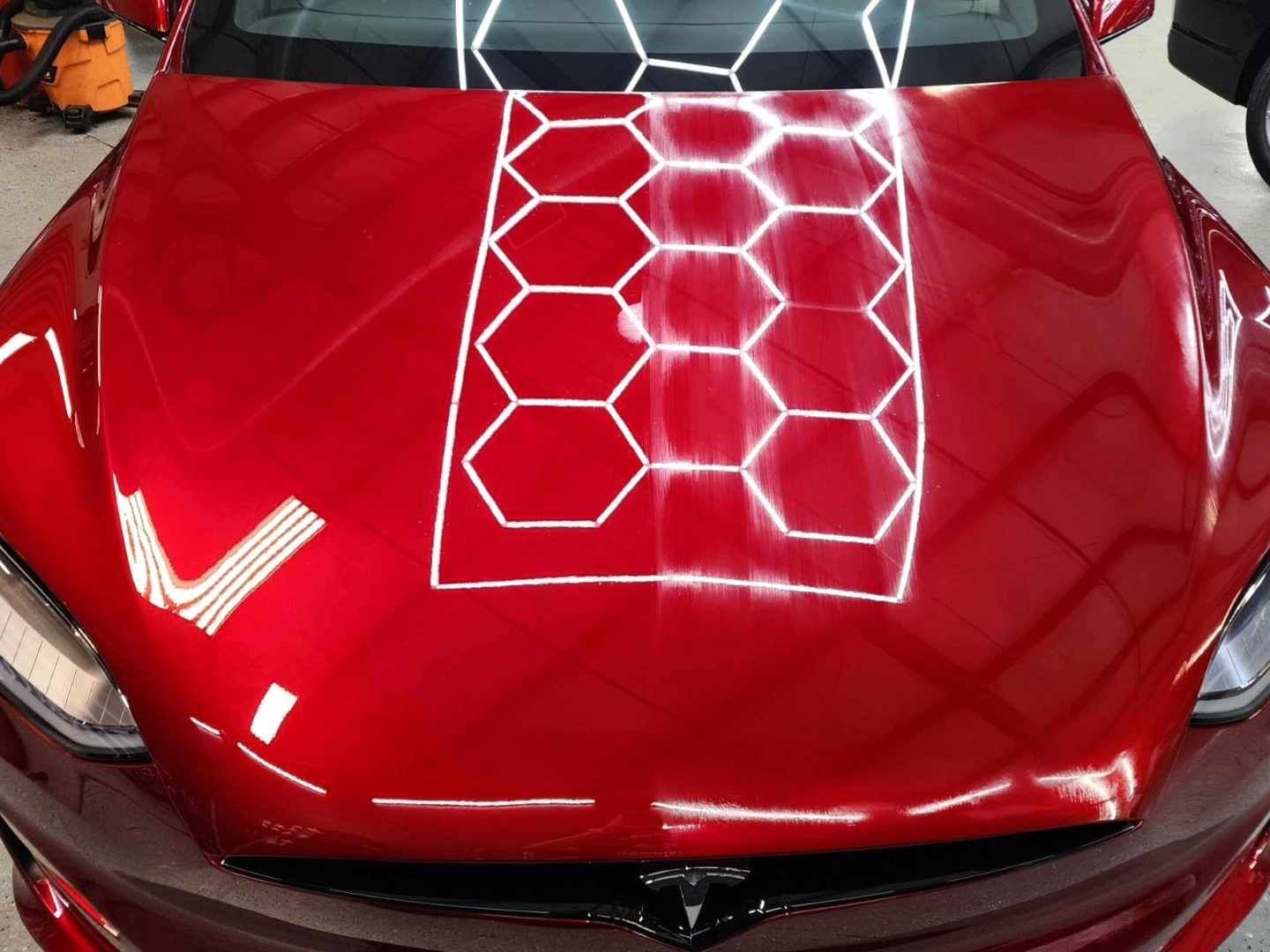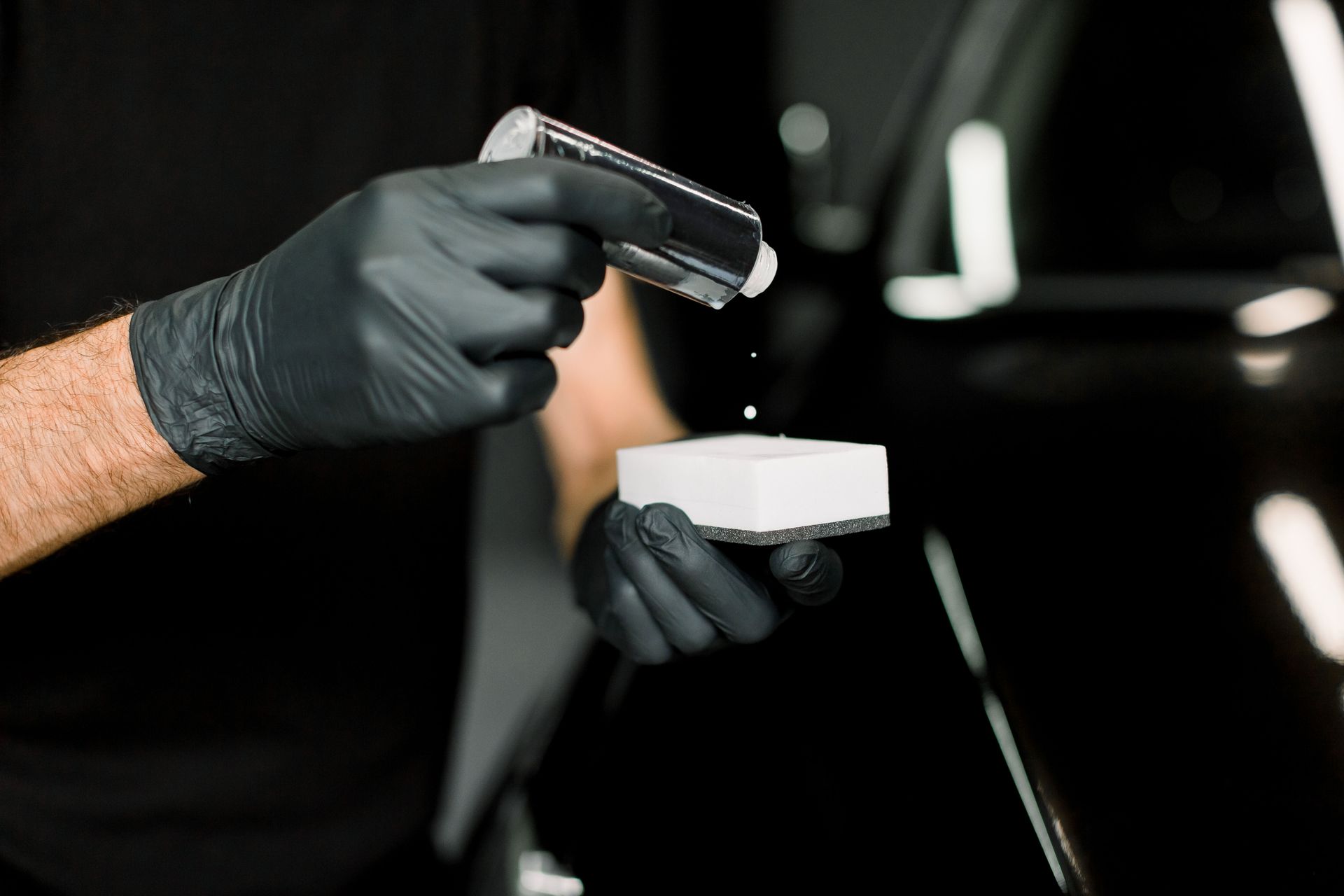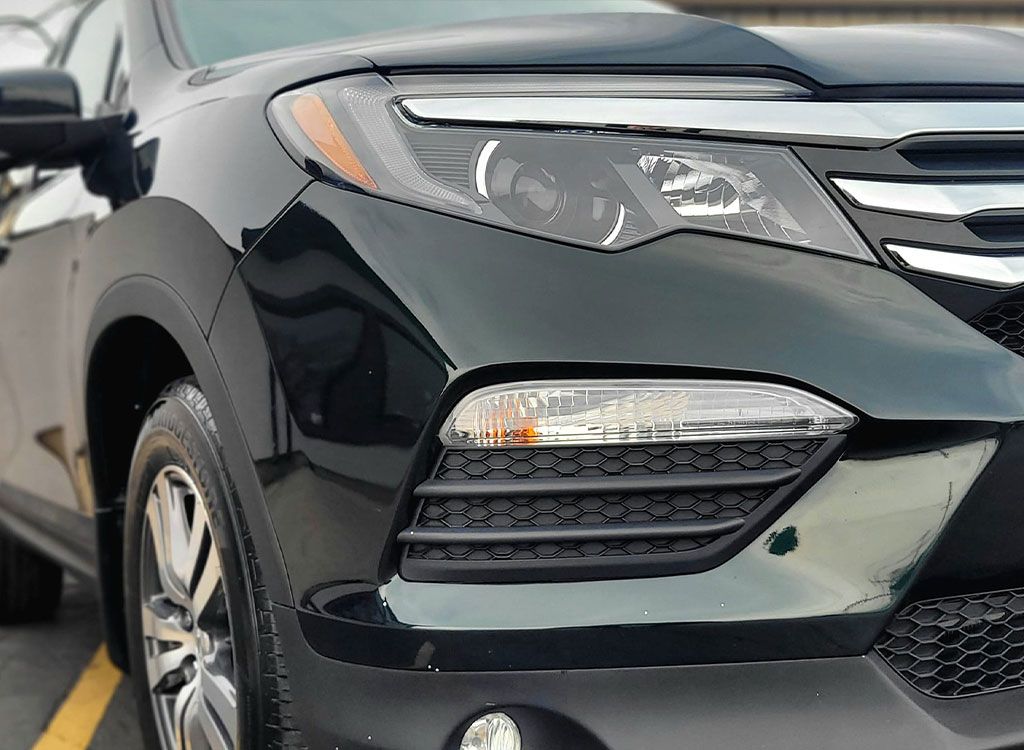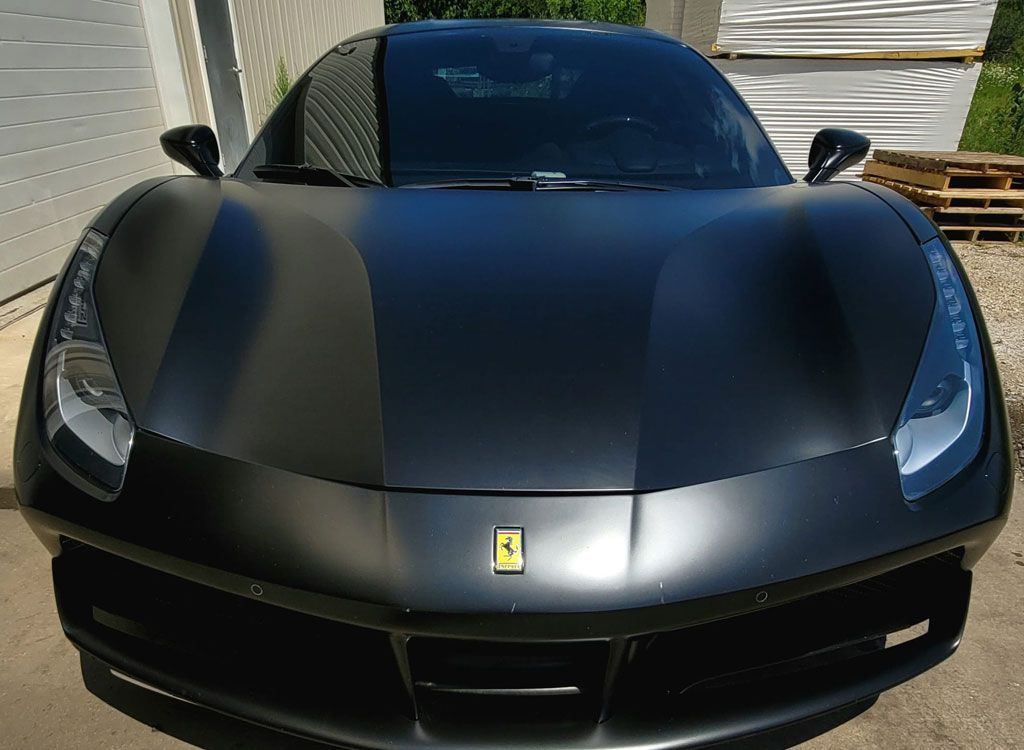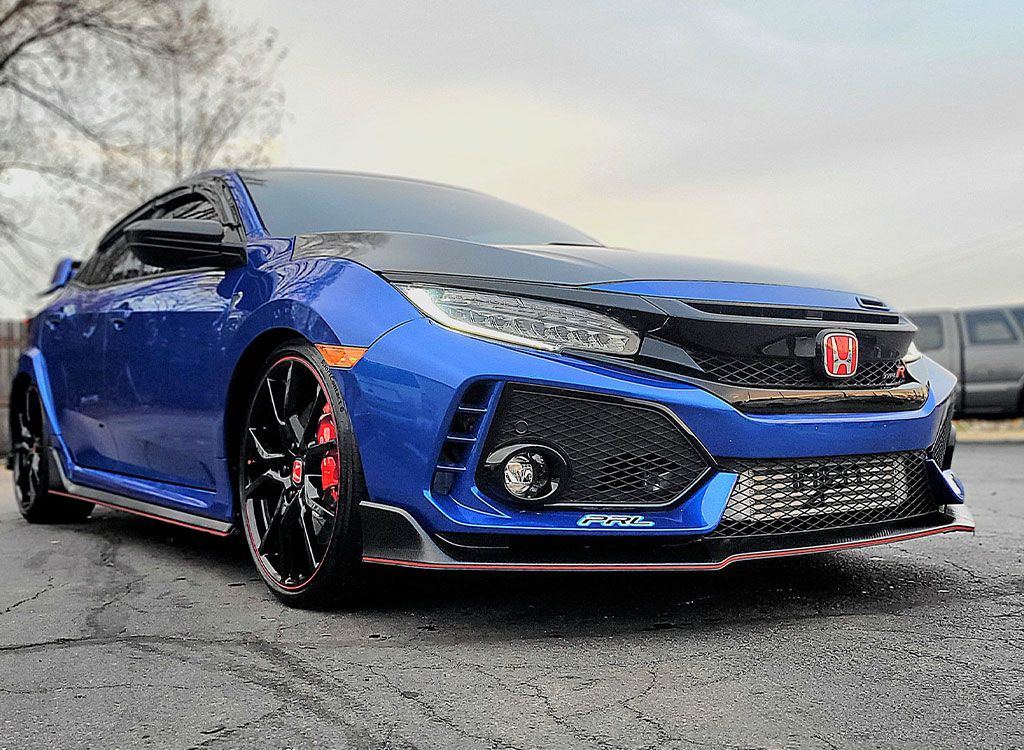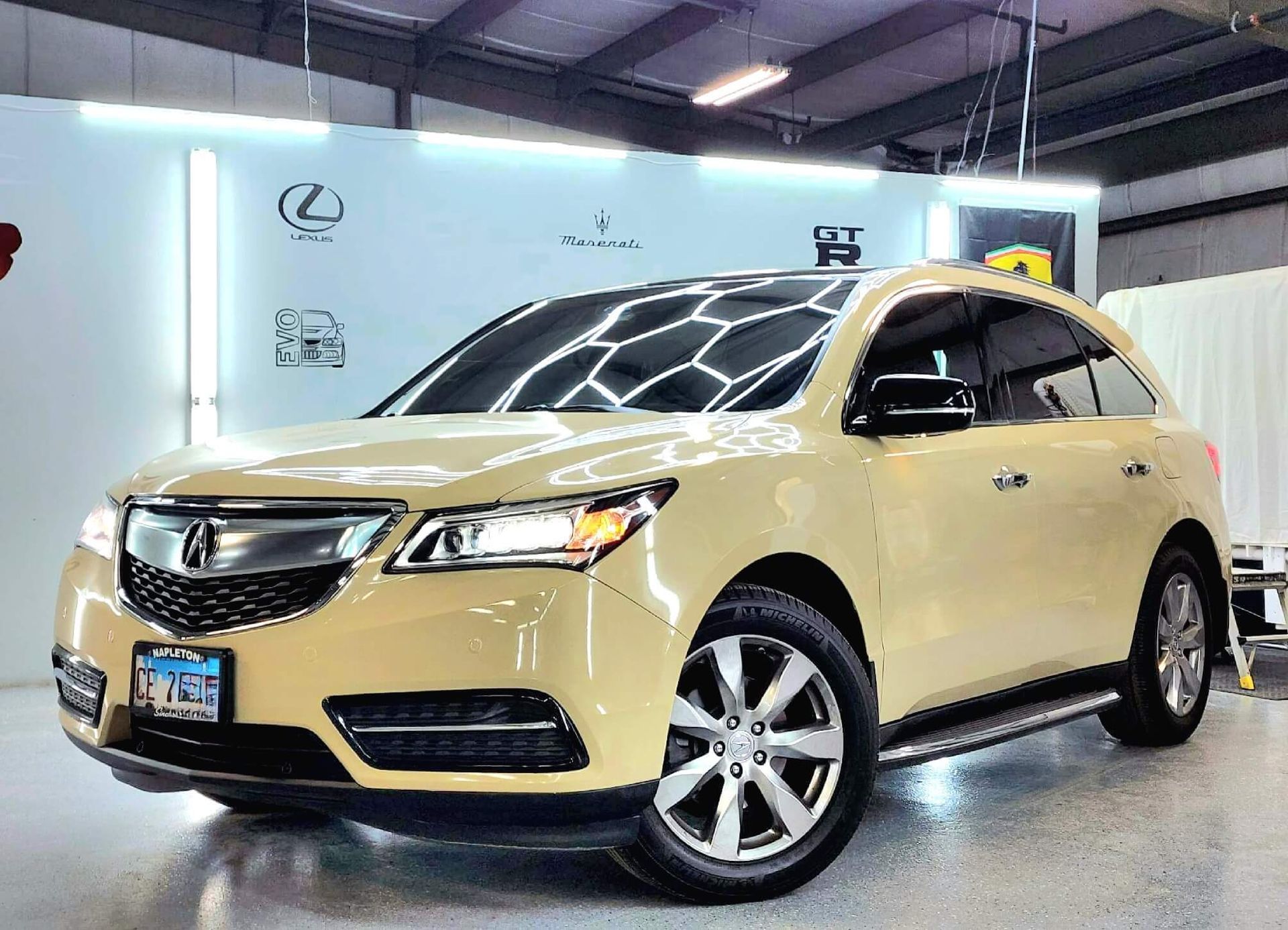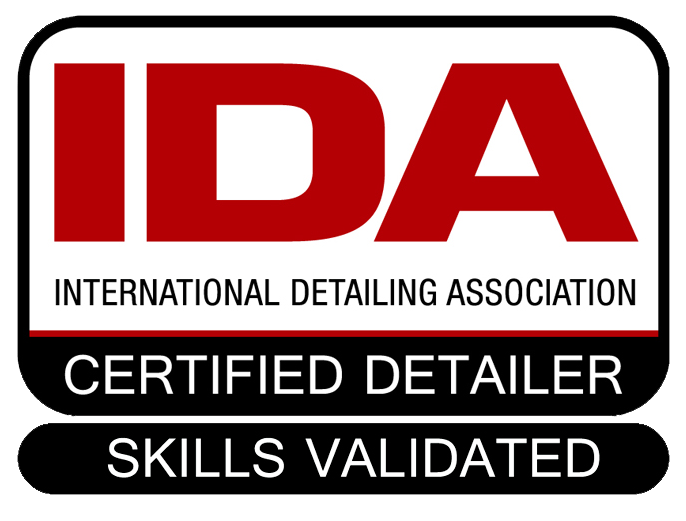How Long Does Ceramic Coating Last? A Guide to Durability and Protection
Ceramic coating on cars frequently lasts up to five years. It forms a sturdy chemical bond with vehicle paint, providing a shield against varied forms of environmental damage. Many find it surprising, though, that despite its strength, regular maintenance extends its life beyond these initial years. Careful washing routines nurture and keep up the protection that your car's coating offers.
Ceramic coatings can last anywhere from 3 to 5 years, depending on factors such as the quality of the coating, application technique, and proper maintenance. Professional-grade ceramic coatings tend to offer longer-lasting protection compared to consumer-grade options. Let’s delve deeper.
Ceramic Coating: A Brief Overview
A ceramic coating is like a shield for your car, protecting it from a wide range of external damage. It's a liquid polymer that is carefully applied to the exterior of a vehicle, where it forms a strong chemical bond with the paint, creating a protective layer that lasts for years. This high-tech coating isn't just about looking good—it provides long-lasting protection against dirt, UV radiation, and environmental factors. This protective layer offers exceptional durability and guards against wear and tear caused by environmental and chemical contaminants. It can give your car's paint job a glossy shine that is hard to achieve with traditional wax or sealant applications. The molecular structure of the ceramic coating creates a surface that repels water, making it easier to clean and providing additional protection against environmental contaminants.
Imagine ceramic coating as a superhero suit for your car. It fights off all the villains: dirt, sun damage, and environmental threats that want to leave your car looking less than stellar. This allows you to keep your car looking its best for an extended period of time. The application process and benefits of ceramic coating are vast and depend on various factors, like the type of coating used and the quality of the application. Professional-grade ceramic coatings typically offer better safeguards and longer-lasting protection compared to consumer-grade options. Additionally, the lifespan of the ceramic coating is influenced by external factors such as climate, maintenance, and the type of surface it is applied to (paint, glass, trim, etc.).
So why invest in ceramic coating? Well, it's not just about giving your car a shiny appearance—it's about providing long-term protection that can save you time and money in the long run.
The Protective Qualities of Ceramic Coating
- UV Protection: One crucial aspect of a ceramic coating's protection is its ability to shield your car's paint job from the harmful effects of UV rays. Similar to how sunscreen protects your skin from the damaging rays of the sun, a ceramic coating acts as a barrier against UV exposure. This level of defense helps to prevent color fading and oxidation of the paint over time, ensuring that your vehicle retains its shine and luster for longer periods. UV rays don't just affect our skin; they can also have adverse effects on your car's paint, causing it to lose its vibrancy and shine. However, with a ceramic coating serving as a protective shield, your car's exterior will be better equipped to withstand these harmful rays, preserving the visual appeal of your vehicle.
- Hydrophobic Properties: Another remarkable quality of ceramic coatings is their hydrophobic nature. Picture this: When water comes into contact with a surface treated with a ceramic coating, instead of spreading out and leaving water spots, it beads up and rolls off effortlessly. This hydrophobic property not only reduces water spots but also makes cleaning your car much easier. It's like having a shield that repels water and prevents it from sticking to your vehicle's surface. Moreover, the self-cleaning effect of hydrophobic surfaces facilitates effortless maintenance, reducing the need for frequent car washes. This not only simplifies the upkeep process but also helps preserve the glossy finish of your car.
- Chemical Resistance: In addition to protecting against UV rays and repelling water, ceramic coatings offer robust resistance against harsh chemicals and contaminants. Imagine driving through environments where chemical contaminants such as acid rain or industrial fallout are prevalent. These substances can slowly eat away at the paint job of your car, causing corrosion and etching. By forming a durable layer on top of the paint, ceramic coatings act as a barrier against these harmful elements, safeguarding your car from potential damage. This chemical resistance is especially crucial in areas subjected to environmental pollutants or during regular cleaning processes involving strong chemical agents.
These protective qualities demonstrate the substantial benefits that come with applying a high-quality ceramic coating to your vehicle's exterior. From shielding against UV damage to facilitating easier cleaning and providing resistance against harsh chemicals, ceramic coatings play a vital role in maintaining the longevity and pristine condition of your car's paint job.
Lifespan of Ceramic Coating on Vehicles
The lifespan of ceramic coatings varies widely based on several factors, including the type and quality of the coating, maintenance, and environmental conditions. Professional-grade ceramic coatings, known for their exceptional durability, typically offer long-lasting protection for a vehicle's paintwork. These high-quality coatings are designed to withstand exposure to the elements and can last from 3 to 5 years when properly applied and maintained. In contrast, consumer-grade ceramic coatings generally have a shorter lifespan, often ranging from 1 to 2 years.
Both the caliber of the particular product and the meticulousness of the application process can affect the durability of these coatings. Moreover, proper maintenance plays a significant role in preserving the integrity of the ceramic coating and extending its lifespan. Regular washing using pH-neutral car shampoos, avoiding abrasive cleaning processes, and steering clear of automatic car washes help maintain the effectiveness of the coating over time. These straightforward but crucial maintenance procedures aid in the ceramic coating's ability to offer sustained protection.
Understanding that environmental factors can also impact the durability of ceramic coatings is essential. Exposure to UV radiation, extreme temperatures, and chemical contaminants can affect the longevity of the coating. However, ceramic coatings demonstrate superior resistance to UV light degradation compared to traditional wax and sealants, making them an appealing choice for long-term protection against environmental stressors.
Maintenance and Aftercare for Ceramic Coating
Congratulations on getting a ceramic coating for your car! Now, one of the most important things you can do to keep it performing at its best is to take proper care of it. With the right maintenance, a ceramic coating can last for years, providing unparalleled protection and a stunning shine. Let's break down the key steps for maintaining your ceramic coating so you can enjoy its benefits for the long haul.
First things first, regular washing is crucial for preserving the protective properties of ceramic coating. This isn't just any washing—it requires special attention. To start, make sure to use pH-neutral car wash soaps to avoid damaging the coating. These soaps are gentle on the coating while effectively lifting dirt and grime from the surface of your car. Additionally, using microfiber wash mitts during washing is highly recommended as they are soft and help avoid scratches, which could compromise the integrity of the coating.
When washing your car, it's best to work in sections to ensure that no part of the vehicle dries with soap on it. Begin by rinsing the car thoroughly to remove loose dirt and debris. Then, use a quality pH-neutral car wash soap and a microfiber wash mitt to gently clean the surface of the vehicle, starting from the top and working your way down. During this process, it's important to avoid washing your car in direct sunlight, as it can cause soap to dry before you have a chance to rinse, leaving behind unsightly residues.
By following these guidelines and implementing proper washing techniques, you can maintain the protective layer of your ceramic-coated car without compromising its integrity.
Factors Influencing Ceramic Coating Durability
The durability of a ceramic coating significantly depends on several key factors. Let's examine how each one plays a substantial role in determining the lifespan of your car's protective coating.
Application Quality
When it comes to ceramic coatings, the expertise and technique of the applicator hold significant sway over the product's longevity. A professional with a keen eye for detail can ensure that every inch of your vehicle is adequately covered, maximizing protection against environmental elements such as UV radiation, contaminants, and minor abrasions. The meticulousness of application is akin to creating a seamless shield that guards your vehicle's paintwork from the rigors of daily use, all while maintaining its glossy finish.
Surface Preparation
Before application, the surface must undergo meticulous preparation to ensure optimal bonding with the ceramic coating. An essential part of this process is paint correction, which involves repairing imperfections like swirl marks or light scratches. This ensures that the surface is flawlessly smooth and free from any blemishes before the coating is applied. Other crucial steps include thorough cleaning and decontamination, eliminating any traces of dirt, grime, or previously applied products that may hinder the bonding process. By removing these potential barriers, the coating adheres more effectively to the clear coat, optimizing its durability.
Environmental Conditions
The environment in which the vehicle operates significantly influences the overall lifespan of ceramic coatings. Harsh weather conditions, exposure to road salts, and irregular maintenance routines can all impact the coating's resilience over time. For instance, prolonged exposure to harsh UV rays can degrade traditional paint sealants over time. However, ceramic coatings offer superior resistance to UV radiation, safeguarding your vehicle's paintwork against premature deterioration. Moreover, extreme temperature shifts and exposure to aggressive chemicals can also affect the longevity of ceramic coatings. Conscientious drivers should be vigilant in their maintenance routines, employing best practices such as using the two-bucket wash method and steering clear of automatic car washes to preserve the integrity of the coating. It's essential for car owners to recognize these environmental influences and take proactive measures to mitigate their impact.
Understanding these influential factors empowers car owners to make informed choices when it comes to caring for their ceramic coatings. From selecting reputable applicators who prioritize precision and quality preparation to implementing regular upkeep tailored to their specific environmental challenges, weaving together these considerations fosters a protective shield that stands the test of time.
Prime Choice for Ceramic Coating Solutions in Elgin, IL
Discover the
premier destination for top-tier ceramic coating solutions in Elgin, IL—CM3 Detailing Studio & Ceramic Coating. Our unparalleled expertise and dedication to excellence make us the prime choice for protecting and enhancing your vehicle's appearance. With a range of advanced ceramic coating options tailored to your needs, our skilled professionals ensure lasting protection against environmental elements and maintain your car's pristine finish. Don't settle for anything less than the best—choose CM3 Detailing Studio & Ceramic Coating for all your ceramic coating needs in Elgin. Schedule your appointment today or call us at
(630) 400-6766 to get started!

